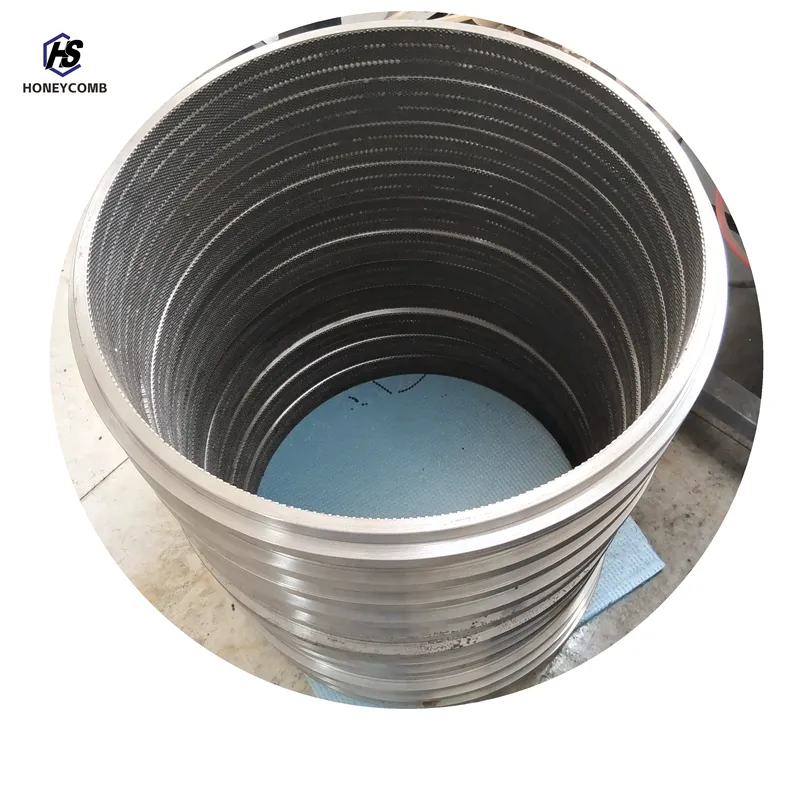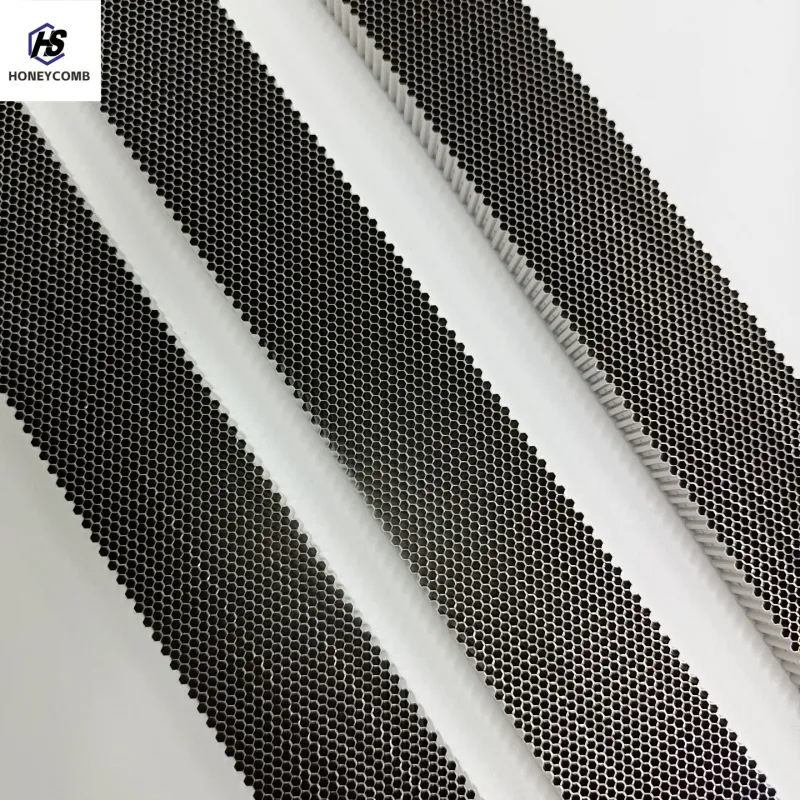
- Afrikaans
- Albanian
- Amharic
- Arabic
- Armenian
- Azerbaijani
- Basque
- Belarusian
- Bengali
- Bosnian
- Bulgarian
- Catalan
- Cebuano
- China
- China (Taiwan)
- Corsican
- Croatian
- Czech
- Danish
- Dutch
- English
- Esperanto
- Estonian
- Finnish
- French
- Frisian
- Galician
- Georgian
- German
- Greek
- Gujarati
- Haitian Creole
- hausa
- hawaiian
- Hebrew
- Hindi
- Miao
- Indonesian
- Italian
- Japanese
- Javanese
- Malay
- Persian
- Portuguese
- Punjabi
- Russian
- Spanish
- Swahili
- Telugu
- Vietnamese

Best Stainless Steel Honeycomb Design – Premium Specs & Affordable Sale
- Introduction to best stainless steel honeycomb design
and its importance - Technical advantages of stainless steel honeycomb panels
- Comparative analysis of leading manufacturers
- Specification deep-dive: best stainless steel honeycomb specs
- Customization solutions for industry needs
- Real-world application case studies with data-driven results
- Conclusion: Unleashing potential with the best stainless steel honeycomb design

(best stainless steel honeycomb design)
Unlocking Industrial Potential: The Best Stainless Steel Honeycomb Design
Stainless steel honeycomb design technology has transformed how architects, engineers, and manufacturers achieve high performance across aerospace, automotive, construction, and energy sectors. With the continuing demand for lighter, stronger, and more corrosion-resistant materials, selecting the best stainless steel honeycomb design is pivotal for meeting next-generation requirements. This article investigates why these panels are the benchmark for structural efficiency, highlighting benchmark specifications, manufacturers, customization strategies, and real-world impact. Discover why this engineered solution consistently finds favor in rigorous applications.
Technical Advantages: Why Stainless Steel Honeycomb?
The unique cellular structure of stainless steel honeycomb panels offers a rare amalgamation of ultra-lightweight core and extreme strength. The hexagonal configuration optimizes material use, resulting in outstanding load distribution and impact resistance. Typical properties include:
- High Strength-to-Weight Ratio: Panels weigh 40-60% less than traditional solid sheets, while maintaining equivalent or superior compressive and flexural strength.
- Exceptional Corrosion Resistance: Grade 304 and 316 stainless steel variants provide maximum resistance in both marine and industrial atmospheres (salt spray resistance exceeding 1000 hours ASTM B117 test).
- Fire and Acoustic Performance: Non-combustibility with ASTM E84 Class A flame rating, plus inherent sound damping for noise isolation in high-decibel environments.
| Property | Honeycomb Panel (Stainless) | Solid Stainless Sheet | Aluminum Honeycomb Panel |
|---|---|---|---|
| Density (kg/m³) | 120-160 | 7800 | 90-140 |
| Compressive Strength (MPa) | 16-30 | 180-250 | 8-18 |
| Flexural Modulus (GPa) | 90-120 | 190 | 69-80 |
| Corrosion Resistance (ASTM B117, hours) | >1000 | >1000 | 300-500 |
| Flame Spread (ASTM E84) | Class A | Class A | Class B |
Comparative Analysis: Leading Manufacturers of Stainless Steel Honeycomb Panels
Selecting the best stainless steel honeycomb for sale often depends on nuanced differences in fabrication techniques and quality control. To guide specification and procurement, we contrasted major international manufacturers on key criteria:
| Brand | Country | Core Material | Panel Size Range (mm) | Tolerances (mm) | ISO Certification | Lead Time (wks) |
|---|---|---|---|---|---|---|
| HexaMetal | Germany | 304, 316L | 300x300 - 1200x3000 | ±0.5 | 9001, 14001 | 6-8 |
| AlloyCore | USA | 316, 321 | 250x250 - 1500x2500 | ±0.3 | 9001 | 4-6 |
| HoneySteel | Japan | 304, 316 | 200x200 - 1800x3600 | ±0.7 | 9001, 45001 | 8-10 |
| PanelSmiths | UK | 304, 316, Custom Alloys | 500x500 - 2000x6000 | ±0.5 | 9001 | 7-9 |
Specification Deep-Dive: Best Stainless Steel Honeycomb Specs
To truly identify the best stainless steel honeycomb specs, it is essential to understand both core and skin variables:
- Cell Size: Ranges from 3mm to 19mm, with 6mm and 9mm being common for optimal strength/weight balance.
- Foil Thickness: Core foils vary from 0.04mm to 0.2mm; thicker foils increase strength at cost of weight.
- Panel Thickness: Standard panels from 6mm to 80mm; specialty options up to 200mm for structural cores.
- Grade: 316/316L for marine and chemical use, 304 for indoor or light exterior architectural applications.
- Surface Finishes: Brushed, mirror, powder-coated, or PVDF; affecting corrosion resistance and aesthetics.
Note: Precise specs selection must align with load analysis, environmental exposure, and installation conditions to avoid overengineering or insufficient safety margins.
Customization: Tailoring Stainless Steel Honeycomb for Industry Demands
Today’s manufacturers increasingly require custom steel honeycomb solutions to address unique design constraints. Leading panel fabricators routinely offer:
- Curve and Forming Capabilities: Panels can be curved/bent to radii below 600mm for aerodynamic structures.
- Insert & Embedded Hardware: Nuts, studs, and mounting interfaces directly bonded for rapid onsite assembly.
- Integrated Functions: Fire-resistant cores can be combined with insulation for blast, fire, or EMI protection.
- Custom Perforation: Acoustic or ventilation demands met with variable perforation schedules without compromising core integrity.
Case Studies: Deploying the Best Stainless Steel Honeycomb Design in Practice
Real-world implementation underscores why this technology wins trust in critical infrastructure. Some compelling examples include:
Case Study 1: High-Speed Rail Panels
A European rail project replaced traditional aluminum panels with 316L stainless steel honeycomb for undercarriage protection, reducing total maintenance costs by 30% over 5 years and eliminating panel warping incidents.
Case Study 2: Aerospace Satellite Fairings
Deployed by a North American aerospace contractor, honeycomb panels reduced fairing weight by nearly 50% compared to titanium sheet, enabling an additional 150 kg of payload per launch.
Case Study 3: Architectural Facades
A Tokyo skyscraper specified custom-perforated stainless steel honeycomb panels to achieve a LEED Platinum rating, while external wind deflection performance improved by 20% over composite cladding.
Performance Comparison Table:
| Application | Traditional Material | Honeycomb Panel (Stainless) | Outcome |
|---|---|---|---|
| Rail Undercarriage | Aluminum Sheet | 316L Honeycomb | 30% maintenance savings, zero warping |
| Satellite Fairing | Titanium Sheet | 304/316 Honeycomb | 50% lighter, +150kg payload |
| Facade Cladding | Composite Panel | 304 Perforated Honeycomb | LEED Platinum, +20% wind resistance |
Conclusion: Championing the Best Stainless Steel Honeycomb Design
Selecting the best stainless steel honeycomb design delivers exceptional value across structural, operational, and environmental metrics. Powerful technical advantages, combined with data-driven manufacturer selection and advanced customization, unlock superior performance for demanding projects. Proven case studies confirm transformational gains in safety, cost-efficiency, and design flexibility. For engineers and decision-makers seeking reliability and future-proofed innovation, investing in the latest honeycomb panel technologies is the cornerstone of next-generation success.

(best stainless steel honeycomb design)
FAQS on best stainless steel honeycomb design
Q: What makes the best stainless steel honeycomb design stand out?
A: The best stainless steel honeycomb design features optimal strength-to-weight ratio, excellent corrosion resistance, and precise cell structure. These characteristics ensure durability and versatile applications. Always check for high-quality stainless steel material and expert manufacturing.Q: What are the key specs to look for in the best stainless steel honeycomb?
A: Important specifications include cell size, thickness, grade of stainless steel, and overall panel dimensions. Look for materials like 304 or 316 stainless steel for superior performance. Uniform cell structure is also a marker of high quality.Q: Where can I find the best stainless steel honeycomb for sale?
A: Specialized industrial suppliers and reputable online marketplaces offer the best stainless steel honeycomb for sale. Always verify customer reviews and manufacturer certifications. Request detailed specs and samples before purchasing.Q: Are there recommended applications for the best stainless steel honeycomb design?
A: This design is popular in aerospace, automotive, and architectural sectors for its strength and light weight. It’s also used in energy, filtration, and marine industries. Choose the right specs for your intended application.Q: How do I maintain and clean the best stainless steel honeycomb?
A: Clean with mild detergents and non-abrasive tools to preserve the surface. Avoid harsh chemicals to protect against corrosion. Regular inspections help maintain optimal performance.Products categories
-
Why Vented Aluminum Honeycomb Is Leading the Way in Shielding and Ventilation SolutionsNewsJul.18,2025
-
Why Stainless Steel Honeycomb Panel is the Ultimate Choice for High-Tech Shielding and ProtectionNewsJul.18,2025
-
Why Honeycomb Strips Are Revolutionizing High-Speed Sealing SolutionsNewsJul.18,2025
-
Shielded Glass Innovation Powers the Future of Electromagnetic ProtectionNewsJul.18,2025
-
Precision Starts Here: Revolutionizing Airflow Control with Honeycomb Wind Tunnel SolutionsNewsJul.18,2025
-
Elevate Industrial Performance with Precision-Engineered Steel Honeycomb Core SolutionsNewsJul.18,2025
-
Vented Aluminum Honeycomb: A Smart Shield for Airflow and EMI ControlNewsJul.11,2025















